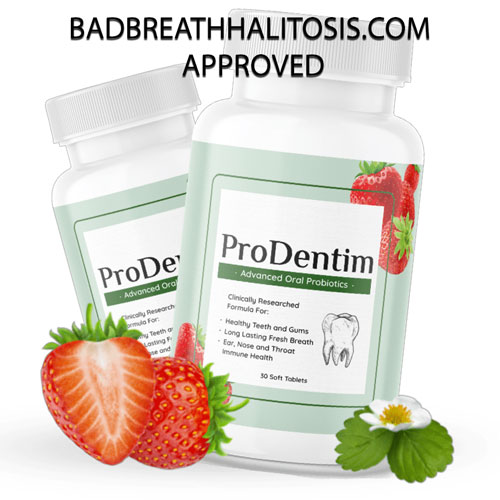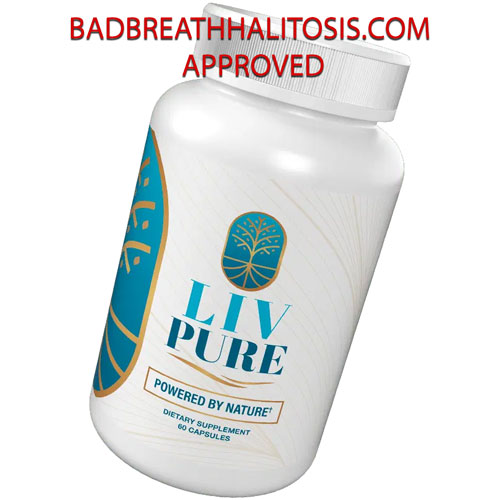

Theory of Underlying Cause of my BB – Carbs & Blood Gluc
Theory of Underlying Cause of my BB – Carbs & Blood Gluc
Theory of Underlying Cause of my BB – Carbohydrate effect on blood glucose level
Summary:
I have measured, most days for the past two weeks, my fasting blood glucose level (immediately upon waking before ingesting anything) and my postprandial blood glucose level (2 hours after eating). The results indicate a pre-diabetic condition. My theory is this may be the root-cause of my BB.
My BB is successfully managed by following two practices.
1. scrupulous attention to dental hygiene
2. limiting carbohydrates in my diet
When I limit carbohydrates I am BB-free. When I eat daily-amounts of carbohydrates, that seem normal for most people, my BB returns.
My fasting blood glucose level moves into the pre-diabetic range when I eat normal portions of carbohydrate. This means the glucose in the bloodstream is admitted abnormally slow into muscle and organ cells. It is therefore at abnormally-high concentrations available to microorganisms in my mouth, skin, etc. which can populate to above-average levels.
If this theory is true (for me); then, no level of above-average dental hygiene procedures alone is sufficient. I must couple good dental hygiene with limited carbohydrate.
Detail:
Two weeks ago I purchased a blood glucose meter kit at a local pharmacy. It was $10.USD and the kit included a portable, hand-held, battery operated, digital glucose meter, 10 lances, 10 disposable glucose test strips, and a glucose solution for meter calibration. Additional blood glucose test strips cost $30.USD for 50 strips.
I am not, yet, fully in a testing routine. I purchased the kit to begin observing the relationship between my blood glucose level and BB, and to establish a set of baseline measurements.
The testing procedure:
• A glucose test strip is inserted into the blood glucose meter. The insertion of the strip automatically starts the meter.
• The kit includes a spring-loaded lance to pierce the skin and bring a drop of blood to the surface.
• The edge of the test strip is then contacted with the blood drop and the drop is drawn into the strip capillary.
• A digital reading of glucose concentration appears within seconds, reported as milligrams of glucose per dL of blood volume.
• Check the meter calibration with the standardized glucose solution.
Week 1 – Low carbohydrates versus my typical diet. I ate primarily vegetables, with some eggs or meat. I ate little, or no, fruit. Little, or no, sweetened soft drinks. I drank coffee throughout the day, each cup containing 1 teaspoon of table sugar. I also used non-dairy creamer. I had a beer twice within that week.
Week 2 – I returned to my normal diet. I consumed food and drink items listed above in the Week 1 section. I also ate fruit, pasta, pizza, rice, some cake and candy. I ate these items in serving portions that most would consider typical.
Results:
Week 1[Low carbohydrate intake]
Fasting Blood Glucose (mg glucose/dL blood) – 87, 90, 85, 74, 97
Postprandial Blood Glucose (mg glucose/dL blood) – 96, 176, 145, 99, 150
Week 2 [Normal carbohydrate intake]
Fasting Blood Glucose (mg glucose/dL blood) – 109, 108, 104, 123, 111, 113, 113, 103, 114, 118
Postprandial Blood Glucose (mg glucose/dL blood) – 117, 125, 112, 78, 105, 131
Discussion:
Blood glucose levels (in concentrations of mg/dL) as reported by the American Diabetes Association (ADA) appear in the following list:
fasting: Normal = 70-99, Pre-Diabetic = 100-125, Diabetic = 126 or higher
postprandial: Normal = 70-145, Diabetic = 200 or higher
random: Normal = 70-125
My fasting blood glucose levels are within the normal range when I eat a low-carbohydrate diet.
My fasting blood glucose levels are within the pre-diabetes range when I eat the collection of foods that I have eaten for decades, i.e. a more-balanced diet containing a large fraction of carbohydrates.
Summary:
I have measured, most days for the past two weeks, my fasting blood glucose level (immediately upon waking before ingesting anything) and my postprandial blood glucose level (2 hours after eating). The results indicate a pre-diabetic condition. My theory is this may be the root-cause of my BB.
My BB is successfully managed by following two practices.
1. scrupulous attention to dental hygiene
2. limiting carbohydrates in my diet
When I limit carbohydrates I am BB-free. When I eat daily-amounts of carbohydrates, that seem normal for most people, my BB returns.
My fasting blood glucose level moves into the pre-diabetic range when I eat normal portions of carbohydrate. This means the glucose in the bloodstream is admitted abnormally slow into muscle and organ cells. It is therefore at abnormally-high concentrations available to microorganisms in my mouth, skin, etc. which can populate to above-average levels.
If this theory is true (for me); then, no level of above-average dental hygiene procedures alone is sufficient. I must couple good dental hygiene with limited carbohydrate.
Detail:
Two weeks ago I purchased a blood glucose meter kit at a local pharmacy. It was $10.USD and the kit included a portable, hand-held, battery operated, digital glucose meter, 10 lances, 10 disposable glucose test strips, and a glucose solution for meter calibration. Additional blood glucose test strips cost $30.USD for 50 strips.
I am not, yet, fully in a testing routine. I purchased the kit to begin observing the relationship between my blood glucose level and BB, and to establish a set of baseline measurements.
The testing procedure:
• A glucose test strip is inserted into the blood glucose meter. The insertion of the strip automatically starts the meter.
• The kit includes a spring-loaded lance to pierce the skin and bring a drop of blood to the surface.
• The edge of the test strip is then contacted with the blood drop and the drop is drawn into the strip capillary.
• A digital reading of glucose concentration appears within seconds, reported as milligrams of glucose per dL of blood volume.
• Check the meter calibration with the standardized glucose solution.
Week 1 – Low carbohydrates versus my typical diet. I ate primarily vegetables, with some eggs or meat. I ate little, or no, fruit. Little, or no, sweetened soft drinks. I drank coffee throughout the day, each cup containing 1 teaspoon of table sugar. I also used non-dairy creamer. I had a beer twice within that week.
Week 2 – I returned to my normal diet. I consumed food and drink items listed above in the Week 1 section. I also ate fruit, pasta, pizza, rice, some cake and candy. I ate these items in serving portions that most would consider typical.
Results:
Week 1[Low carbohydrate intake]
Fasting Blood Glucose (mg glucose/dL blood) – 87, 90, 85, 74, 97
Postprandial Blood Glucose (mg glucose/dL blood) – 96, 176, 145, 99, 150
Week 2 [Normal carbohydrate intake]
Fasting Blood Glucose (mg glucose/dL blood) – 109, 108, 104, 123, 111, 113, 113, 103, 114, 118
Postprandial Blood Glucose (mg glucose/dL blood) – 117, 125, 112, 78, 105, 131
Discussion:
Blood glucose levels (in concentrations of mg/dL) as reported by the American Diabetes Association (ADA) appear in the following list:
fasting: Normal = 70-99, Pre-Diabetic = 100-125, Diabetic = 126 or higher
postprandial: Normal = 70-145, Diabetic = 200 or higher
random: Normal = 70-125
My fasting blood glucose levels are within the normal range when I eat a low-carbohydrate diet.
My fasting blood glucose levels are within the pre-diabetes range when I eat the collection of foods that I have eaten for decades, i.e. a more-balanced diet containing a large fraction of carbohydrates.
-
Music Lady
- Advanced
- Posts: 132
- Joined: Thu Jun 18, 2009 11:16 pm
Hi Music Lady,Music Lady wrote:Do you both have the sweet smell or fruity breath that's associated with diabetics? I wonder if your doctors could tell for sure based on the type of smell. I've read from other diabetics that the meds they put you on might possibly help.
My breath was neither sweet nor fruity. Unfortunately it was more the off-gas, by-product of anaerobic microorganisms.
I first noticed the BB reduction, last autumn, when I decreased carbohydrates in my diet, posted here.
I am keeping my blood glucose level within the normal range through diet; and, presently the BB is gone.
- Archimonde
- Super Angel
- Posts: 878
- Joined: Tue Nov 20, 2007 12:14 pm
A vegan diet and a low carb diet are on the opposite side of the spectrum. You can't be a vegan and do low carbs, that's a contradiction, or you wouldn't be eating anything - calories either come from carbs, protein or fat. So where are your calories gonna come from? Fyi, veggies and fruit have carbs, especially the latter. Grains are nothing but carbs.deebas wrote:I have just started a vegan diet but I know that I will probably have to give up carbs
Having tried every diet there is (i'm not exagerating, i've went as far as eating nothing but raw meat for a week). I'd rank the typical vegan diet as the worst diet for BB.
edit: actually, it'd be theoretically possible to do a low-carb vegan diet if one were to eat nothing but avocados and coconuts - since both are from the plant world and both have enough fat to satisfy the daily calorie requirement.
Last edited by Archimonde on Sat Jul 25, 2009 12:57 pm, edited 1 time in total.
bhd,bhd wrote:the waterpik solution you had doesn't work for you anymore?
The waterpik use, in combination with a low-carbohydrate diet, is working for me. However, good oral hygiene (for me) was futile in controlling BB, until I brought my blood-sugar level down to the normal range, through diet.
I coincidentally noticed, when I first posted the use of oral irrigation and triclosan toothpaste (which I still use), seen here, that I was on a low-carbohydrate diet.
deebas,deebas wrote:I have just started a vegan diet but I know that I will probably have to give up carbs including beer and bread which will be very difficult. Have you got any tips on cutting down on these foods?
The one tip I have is to determine if the absence of carbohydrates in your diet results in improvement. Perhaps you could eliminate these from your diet for one or two weeks to observe the effect. If you see a clear benefit it may affect the fraction of carbohydrates you resume eating.
Yes, beer several times a week.deebas wrote:do you drink any alcohol at all now?
sorry, I probably should have said cut down on refined carbs such as those found in bread and beer and not complex carbs such as those found in vegies and flax seeds. So far I have only gone one week with no meat or fish.. have gone with no milk for prob a year now due to BB, very little cheese and prob couple of eggs a week - the new diet has done wonders for my past blockage problems..
However BB still alive and well and continues to worsen.. i really wanna give this a bit of time to work though.. cos it took me years to compile this BB problem so its not gonna go away overnight...
Good to see that your BB is decreasing and you can still have a few beers
However BB still alive and well and continues to worsen.. i really wanna give this a bit of time to work though.. cos it took me years to compile this BB problem so its not gonna go away overnight...
Good to see that your BB is decreasing and you can still have a few beers
- Archimonde
- Super Angel
- Posts: 878
- Joined: Tue Nov 20, 2007 12:14 pm
On the topic of dairy, it is interesting to note that cheese and butter contain 0 carbs while milk, creme, yogurt have considerable amount of carbs.
If carbs are truly what bacteria feed on, then eating cheese should have no effect on BB.
It'd be great if someone who's on a very low carb diet could add cheese to their diet and eat it in large quantity for a week, say 100-200g a day. That would be a very easy way to test if your breath is bad solely coz of carbs or if there's more to it.
As i said, if carbs is the cause of BB, then you could live on nothing but cheese and you should have a fresh breath. The idea seems pretty ridiculous but really, who ever had cheese without eating other things full of carbs like bread and whatnot? We can't know for sure til someone who's having success on a low carb diet such as Searching starts eating cheese. Any taker?
If carbs are truly what bacteria feed on, then eating cheese should have no effect on BB.
It'd be great if someone who's on a very low carb diet could add cheese to their diet and eat it in large quantity for a week, say 100-200g a day. That would be a very easy way to test if your breath is bad solely coz of carbs or if there's more to it.
As i said, if carbs is the cause of BB, then you could live on nothing but cheese and you should have a fresh breath. The idea seems pretty ridiculous but really, who ever had cheese without eating other things full of carbs like bread and whatnot? We can't know for sure til someone who's having success on a low carb diet such as Searching starts eating cheese. Any taker?
Archimonde,Archimonde wrote:On the topic of dairy, it is interesting to note that cheese and butter contain 0 carbs while milk, creme, yogurt have considerable amount of carbs.
If carbs are truly what bacteria feed on, then eating cheese should have no effect on BB.
...if someone who's on a very low carb diet could add cheese to their diet and eat it in large quantity for a week, say 100-200g a day. That would be a very easy way to test if your breath is bad solely coz of carbs or if there's more to it.
...if carbs is the cause of BB, then you could live on nothing but cheese and you should have a fresh breath.
I agree. Fresh milk smells more pleasant versus strong cheese. The conversion from the [fractionated] milk-to-cheese takes place by the mold, or bacteria, consuming the milk carbohydrate, i.e., lactose sugar converted to lactic acid. Whereas a fraction of the milk protein remains in cheese. The unpleasant smell from strong cheeses, or from spoiled milk, may be due to the conversion of carbohydrate, less-so from a conversion of protein.
btw, It seems the microbial species in my lower-gastrointestinal (GI) tract have automatically-morphed into a different, less-disagreeable population, several weeks after lowering blood-glucose levels through a low-carbohydrate diet. My lower GI, which for years had the aura reminiscent of a sewer-pipe (olfactorily quite offensive), has taken on a completely neutral tone.
Hi deebas,deebas wrote:...can you give us an idea of what you eat in place of refined carbs, i'm mostly interested in breakfast when they're hard to avoid.
...when you eat fast food or eat out etc.. any tips on sticking to your diet
For breakfast, when there is time, I have 2 or 3 eggs with sausage - and 1 or 2 cups of lightened, sweetened coffee (1 teaspoon of sugar per cup).
Lunch and dinner are typically a salad or buttered green vegetables with lean meat, chicken, or fish, in portions large enough to satisfy my hunger.
Between meals I've been snacking on dried fruit and nuts (shelled almonds and pecans).
I've been determined to stay on a low-carbohydrate diet, for a time period long enough to observe a clear, unambiguous relationship between what I eat, and the effect on managing blood-sugar level and BB.
Personally, the fact that my [former] typical diet produced a pre-diabetic, fasting blood-glucose level, was sufficient to scare me straight.
If the theory of the relationship between prolonged, abnormally-high, blood glucose level and BB holds true, that piece of information will be useful and valuable to me - as it will return dignity and confidence to no longer be at the mercy of the condition. That is where the will-power, to stay on the diet, is derived.
If this approach ceases to work, I will let you know. I will then read the postings, look at the evidence, think further, and explore the next theory.
Best wishes to all in finding your solution.
Last edited by searching on Tue Jul 28, 2009 2:03 pm, edited 1 time in total.
- Archimonde
- Super Angel
- Posts: 878
- Joined: Tue Nov 20, 2007 12:14 pm
@Searching
Do you have a ballpark idea of how many grams of carbs you can eat daily without having BB? There's gotta be a threshold, i wonder if it's the same one for everyone.
I would think that if it's more than 30g/day, it'd be fairly easy to stick to such a diet for life. Less than 30g, might be a lil hard but certainly possible.
Do you have a ballpark idea of how many grams of carbs you can eat daily without having BB? There's gotta be a threshold, i wonder if it's the same one for everyone.
I would think that if it's more than 30g/day, it'd be fairly easy to stick to such a diet for life. Less than 30g, might be a lil hard but certainly possible.
-
TeamZissou
- Advanced
- Posts: 143
- Joined: Mon Nov 10, 2008 11:01 pm
